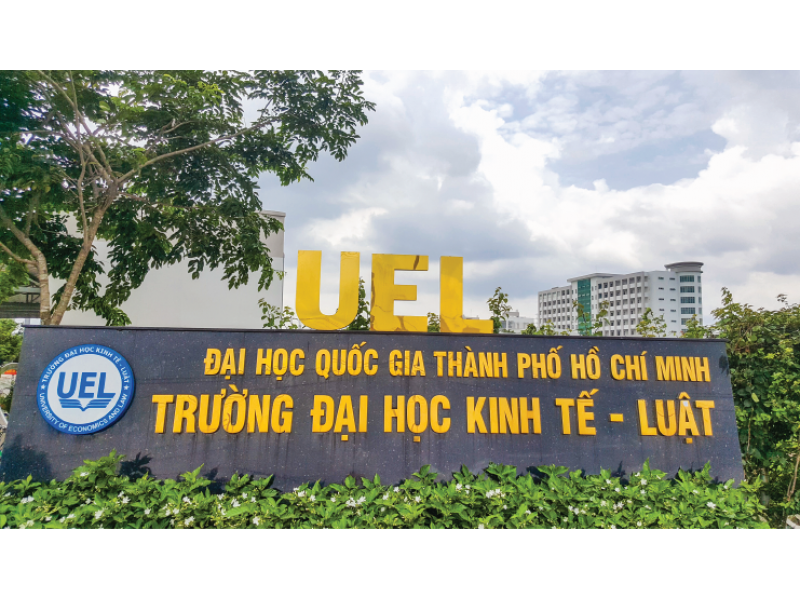Tên luận án: The Effects of Brand Personality and Social Media on Purchase Intentions of Authentic Agricultural Products: The Vietnamese context
Chuyên ngành: Quản trị kinh doanh
Mã ngành: 9340101
Họ và tên NCS: Trần Thị Tường Vi
Giảng viên hướng dẫn: TS. Hồ Nhựt Quang
Cơ sở đào tạo: Trường Đại học Quốc tế, Đại học Quốc gia TP.HCM
Tóm tắt luận án
- Theoretical contribution
This study significantly contributes to theory by incorporating social identity theory into the branding and marketing framework of authentic agricultural products. This study contests the idea of agricultural products as mere commodities by presenting a model that highlights their originality and distinctiveness. The primary theoretical implication is the demonstration of how brand personality, when congruent with social identity, can markedly affect purchase intentions for these products.
This study offers a novel viewpoint on the function of social media as a moderator that enhances the relationship between brand authenticity and customer behavior. This research broadens the applicability of social identity theory by situating it inside the realm of authentic agricultural goods, which are intricately linked to culture and location. The study reconciles established branding approaches with the distinctive attributes of culturally meaningful commodities.
This study enhances current concepts of brand equity, brand authenticity, and consumer preference by placing them in a wider social identity framework. The results indicate that customers' affiliation with a specific social group or culture affects their views of authentic products and, purchasing intentions. This study enhances the existing literature on brand marketing by elucidating the intricate link among identity, authenticity, and customer behaviors.
The previous research on branding and consumer behavior has thoroughly examined the influence of brand personality and social media on consumer products overall. Nonetheless, there has been a notable deficiency in attention on the impact of these elements on genuine agricultural goods, particularly those linked to distinct cultural or geographic locales. This study addresses the gap by presenting a novel conceptual paradigm that highlights the distinctiveness of these items.
The primary contribution to this literature is the amalgamation of social identity theory with branding techniques for genuine agricultural products. This methodology underscores the significance of social identity in consumer decision-making, a facet that remains little examined within the realm of agricultural products. The research indicates that brand personality and authenticity are crucial for enhancing brand equity and reinforcing customers' social identity, thereby elevating purchase intention.
Moreover, the study enhances the literature by examining the moderating influence of social media. This study expands on prior research regarding social media's influence on consumer behavior by investigating its role in enhancing the connection between brand authenticity and purchase intention, particularly for culturally relevant agricultural products. The study consequently facilitates more intricate examinations of the interplay between social media, brands, and authenticity in further research.
- Managerial contribution
The study has significant practical consequences for marketers and management involved with genuine agricultural products. Initially, enterprises must acknowledge the significance of cultivating a robust brand persona that corresponds with consumers' social identities. By highlighting the cultural or geographic roots of these products, marketers can leverage the emotional and social ties people possess with their ancestry, therefore enhancing brand loyalty and buy intent.
The report underscores the significance of social media in branding initiatives. Managers have to utilize social media platforms to augment the visibility and authenticity of their offerings. Social media facilitates direct engagement with consumers, fosters user-generated content, and promotes community development, all of which enhance brand equity. The results indicate that a dynamic and genuine presence on platforms like Facebook, Instagram, and YouTube can substantially enhance the influence of brand personality on consumer behavior.
Moreover, the study offers practical recommendations for enterprises aiming to promote their genuine agricultural products in a competitive environment. By emphasizing brand authenticity and aligning marketing strategies with consumers' social identities, corporations can distinguish their products from generic competition. This focused strategy will enhance consumer trust and establish a competitive edge in both domestic and international markets. The examination of hypothesis testing results leads to the formulation of many recommendations for marketers and brand managers of genuine agricultural products in Vietnam.
The development and communication of unique brand personas that effectively resonate with the target audiences is of utmost importance for agricultural companies. This may entail using narrative techniques that emphasize the brand's principles, manufacturing methods, and dedication to excellence, therefore enhancing social identification and perceptions of quality.
On one side, thí study also emphasis on the aspect of authenticity in brand communications from the substantial impact of Brand Authenticity on consumer preferences, It is vital for businesses to ensure that communications and product supplies continue to reflect their real beliefs. Transparency in marketing tactics, reliable labeling, and focusing on the origins and techniques of product cultivation can robust the sucessful goals. Maximize the application of social media networks to successfully relate brand personality and authenticity. Interactive information, such as videos demonstrating the agricultural process or confirmation from actual farmers, can augment the perception of genuineness and fortify consumer relationships.
On the flip side, to effectively build brand equity, it is crucial to improve the consistent brand experiences that are in line with the brand's personality and authenticity. Promotion campaigns, strict quality control measures and active participation in community projects can effectively enhance a brand's unique selling point.
To align marketing strategies with the principles of Social Identity Theory, from one view, the design of marketing tactics should be tailored to fit the social identity of future targets. Besides, focusing the methods in which brand purchases contribute to the well-being of local communities, enhance sustainability, and preserve cultural heritage can enhance consumer preferences and purchase intentions.
Finally, the empirical results of this study provide strong evidence of the strategic importance of brand personality, authenticity, and equity in impacting customer preferences and purchase intention in the agricultural major. By utilizing these worthy observations, agricultural businesses in Vietnam can figure out more attractive marketing solutions that engage consumers and robust economic growth.
For discussion, the findings of hypothesis testing in this work offer compelling evidence that all the relationships predicted in the model are statistically significant, as indicated by p-values below the standard threshold of 0.05. Therefore, all hypotheses are confirmed to be accepted. Table 5.8 presents a thorough analysis that offers valuable insights into the intensity and orientation of the connections among brand personality, brand equity, brand authenticity, social identity, consumer preference, and purchase intention, particularly in the authentic agricultural products industry in Vietnam.
The coefficients of the standardized regression indicate numerous significant results. In one sense, the standardized coefficient of 0.577 indicates that the contribution of Brand Personality (BRAP) to Social Identity (SOID) is the most significant. The substantial coefficient highlights the crucial influence of brand personality on the formation of customers' social identities, particularly in the realm of agricultural products, where there is clear personal association with brands. Brands that possess well defined and relatable personalities tend to elicit stronger associations from consumers, therefore strengthening their own social identities.
Besides, the correlation between Brand Personality and Brand Authenticity (BRAAU) is enhancing, as identified by a figure of 0.405. These results show that brands that illlustrate a unique and attractive personality are seen as more authentic. The sense of authenticity holds extremely importance in the background of agricultural products, as elements such as quality, origin, and ethical standards are highly estimated. Brand personality's substantial influence on authenticity concentration the necessity for agricultural coporates to remain and sustain unique and genuine personas in order to attract to consumers.
In another sense, the standardized coefficient of 0.295 for the impact of Brand Personality on Brand Equity (BRAE) proves to be statistically significant, although some situations are not as clear as earlier associations. The findings of this study show that an increasing and favorite brand personality has ability to robust the aspects brand value, brand loyalty, and brand recognition. Building a valuable brand equity for agricultural products is esential by nuturting an attractive personality, as it asists to be the popular brand in a market that is usually defined by casual conceptions of goods.
From another perspective, an analysis of the impact of Brand Equity (BRAE), Brand Authenticity (BRAAU), and Social Identity (SOID) on Consumer Preference (COP) showed coefficients of 0.208, 0.358, and 0.288 correspondingly. In these factors, Brand Authenticity showed the clearest influence, recommending that consumers highly estimate the brand authenticity when creating their preferences. Consistent with consumers' need for transparency and authenticity in agricultural items, which are usually assessed on the foundation of their dependability and authentic characters. The correlation coefficient of 0.392 between Consumer Preference (COP) and Purchase Intention (PUIN) illustrates a significant influence. The aforementioned discovery validates that the probability of purchase is directly influenced by consumer preferences, which are shaped by elements such as brand equity, authenticity, and social identity. The magnitude of consumer preference for a brand directly correlates with the level of intention to buy the goods associated with that brand. That underscores the need of aligning brand strategies with consumer preferences in order to successfully stimulate purchase intention.
In numerous comparisons with existing literature respects, the results of this study are both consistent with and expand upon prior studies.
Application of Social Identity Theory: Brand Personality's significant influence on Social Identity further validates the applicability of social identity theory in comprehending consumer behaviour within the agricultural product industry. These findings are consistent with previous research indicating that customers like to associate themselves with brands that mirror their own identities and social circles âker(Aaker, 1997). This phenomenon is particularly evident in societies characterized by robust community and social bonds, such as Vietnam.
Assessment of Brand Authenticity and Purchase Intention: The considerable impact of Brand Authenticity on shaping Consumer Preferences and Purchase Intention serves to reinforce prior studies that highlight authenticity as a crucial factor in consumer decision-making. This holds especially true in markets where the history, manufacturing techniques, and brand narratives of a product are significant, such as in the agricultural industry (Morhart et al., 2015).
The Moderatory Function of Social Media: Although the specific moderating effects of social media are not shown in the table, the general suggestion is that social media strengthens connections by magnifying brand messages, personality, and genuineness. Social media platforms offer brands the essential means to express their personalities and enhance their value through more interactive and captivating means, further corroborating conclusions from earlier studies in digital marketing (Papadimitriou et al., 2015).
The COVID-19 epidemic has radically transformed consumer purchase patterns globally. Following discussions with experts across several domains, we determined that the role of social media is essential, even emerging as a fundamental competitive strategy in certain corporate sectors. This is due to the fact that Social media enables customers to augment brand awareness, boost engagement, and promote communal sharing of consumer experiences. Affluent families genuinely appreciate the genuineness of products and brand prestige.
Our findings suggest three strategies to augment consumer purchase intention: enhance brand personality to improve social identity, brand equity, and brand authenticity; elevate social identity, brand equity, and brand authenticity to strengthen consumer preference; and appeal to consumer preference to increase purchase intention.














Hãy là người bình luận đầu tiên